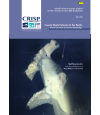Sharks are found throughout the world in a wide variety of habitats and developed different life histories traits. Though sharks make up only a small percentage of the world’s recorded fish landings, they are extremely versatile and are a valuable resource. They are of primary importance in some regions of the world, sustaining important fisheries in some countries. Moreover, they have been, and are, a cheap but valuable source of protein for coastal communities dependent on subsistence fisheries. Humans can utilize much of the carcass for food or other uses. Sharks are exploited for their meat, fins, skin, liver, teeth, cartilage and other internal organs. Sharks are increasingly becoming endangered on a world-wide scale. The main reason for this is the demand for their fins which are being used for shark fin soup, an Asian delicacy. The extermination of Asian shark stocks has led to an increase in the price of the fins and this in turn has led Asian fishing operators to target sharks further and further away from their home countries, including the Pacific region. It has also contributed to the development of specific fisheries whereas elasmobranchs were so far essentially by-catches. From the point of view of Fisheries Departments of the Pacific countries, fishing pressure on reef sharks is not high, although no data is available for most of these countries. Assessment of the information collected through literature and questionnaires shows that Pacific shark catches seem to be poorly documented. This bibliographic study enhances the need for rapid assessment techniques using biological information to evaluate the risk from the effects of fishing on shark conservation.


 English
English
